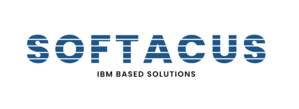
Aug 18, 2022 from from 09:00 AM to 10:00 AM (PT)
The AUTOSAR classic platform standard has been widely adopted by the industry for small to medium ECUs, with the newer AUTOSAR adaptive platform getting adopted in more complex and advanced Automotive applications.
This webinar will introduce AUTOSAR, providing an overview on the concepts behind classic and adaptive platform. We will also briefly cover the workflows for both standards, from high-level system architecture, all the way down to automatically generating production code for AUTOSAR software components.
AUTomotive Open System ARchitecture (AUTOSAR) is a development partnership of automotive interested parties founded in 2003. It pursues the objective to create and establish an open and standardized software architecture for automotive electronic control units (ECUs). Goals include the scalability to different vehicle and platform variants, transferability of software, the consideration of availability and safety requirements, a collaboration between various partners, sustainable use of natural resources, and maintainability during the product lifecycle.
IBM Engineering Lifecycle Management (ELM) is the leading platform for today’s complex product and software development. ELM extends the functionality of standard ALM tools, providing an integrated, end-to-end solution that offers full transparency and traceability across all engineering data. From requirements through testing and deployment, ELM optimizes collaboration and communication across all stakeholders, improving decision- making, productivity and overall product quality.
This webinar will introduce AUTOSAR, providing an overview on the concepts behind classic and adaptive platform. We will also briefly cover the workflows for both standards, from high-level system architecture, all the way down to automatically generating production code for AUTOSAR software components.
AUTomotive Open System ARchitecture (AUTOSAR) is a development partnership of automotive interested parties founded in 2003. It pursues the objective to create and establish an open and standardized software architecture for automotive electronic control units (ECUs). Goals include the scalability to different vehicle and platform variants, transferability of software, the consideration of availability and safety requirements, a collaboration between various partners, sustainable use of natural resources, and maintainability during the product lifecycle.
IBM Engineering Lifecycle Management (ELM) is the leading platform for today’s complex product and software development. ELM extends the functionality of standard ALM tools, providing an integrated, end-to-end solution that offers full transparency and traceability across all engineering data. From requirements through testing and deployment, ELM optimizes collaboration and communication across all stakeholders, improving decision- making, productivity and overall product quality.









